I tried ChatGPT Search and now I might never Google again
What modern search should be
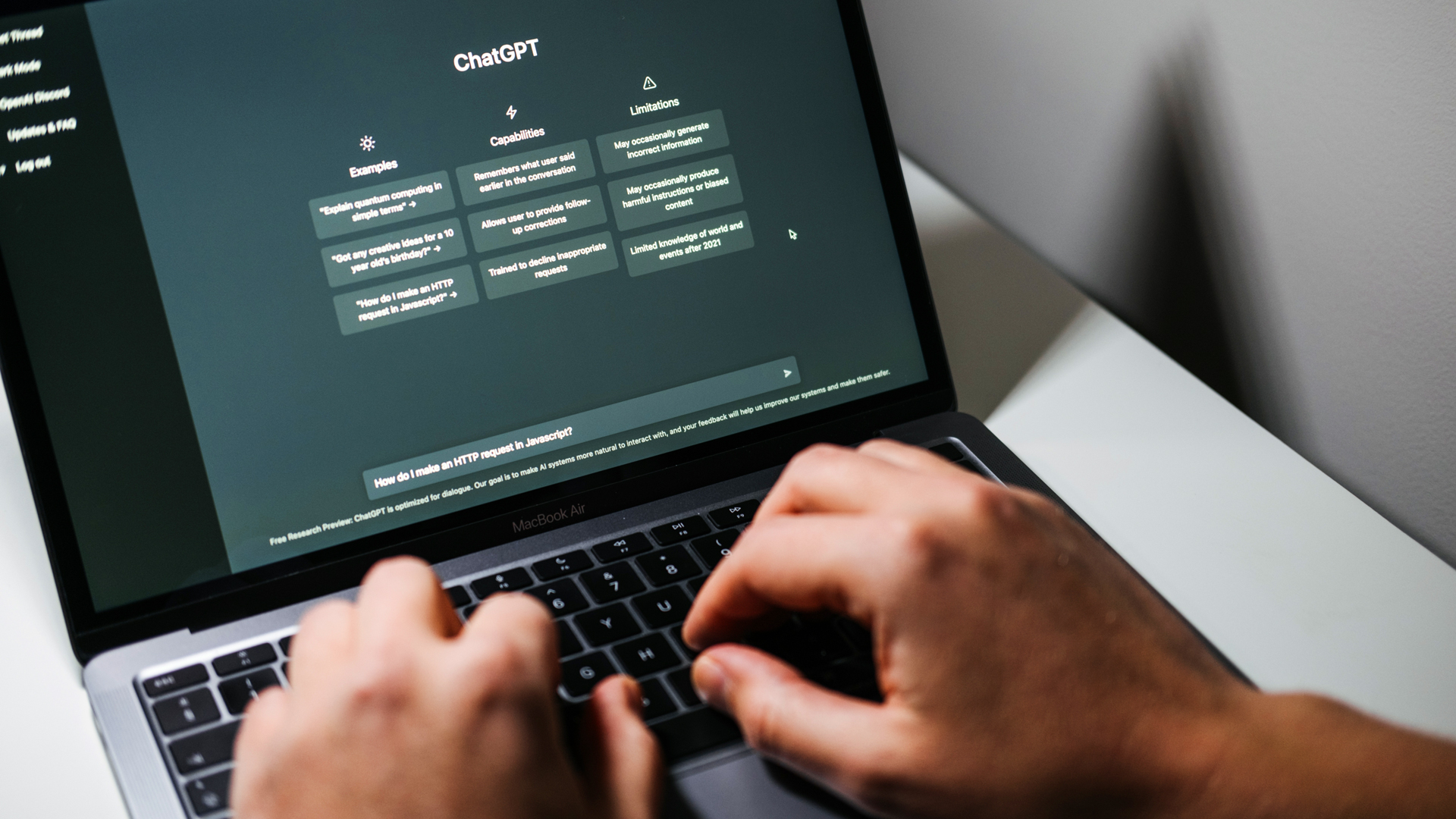
21 years ago I wrote, "I Search Therefore I Google". It's something I could arguably still write today, along with the billions of others who start their day with a query dropped into the Google homepage or, more likely, their address bar where Google is casually seated. All that could change, though, and now, after using ChatGPT search, I wonder if a half decade from now, I'll write "I search therefore I ChatGPT".
OpenAI's ChatGPT has already had an incredible run as one of the first generative AI platforms everyone knows about, if not uses. The ambition to add search to the platform was well-known and, in some ways, seen as a smart way to bridge the gap between what often appeared to be canny answers and too-frequent hallucinations and misinformation.
With the indexed and current web as a foundation, ChatGPT is instantly smarter. The allure of a generative AI search engine is the conversational nature and the ability to maintain context without restating the initial query. Discovery is more of an interactive exploration.
When OpenAI announced its plans to introduce SearchGPT (what became ChatGPT search) I signed up for early access. As a result, even though I have a free ChatGPT account, I got access to ChatGPT 4o with integrated search. It's a pretty subtle integration; you access search by selecting the globe in the prompt box. Once you do that, you're in ChatGPT search until you turn it off.
For the TL;DR crowd, here's what I found:
- Fast
- No ads
- Accurate
- Clean looking
- Aware
With the exception of awareness, ChatGPT Search is all the things early Google was before it started monetizing our eyeballs.
Modern Google Search now carries so much water for all of Google's other products and services (and its voracious need for revenue) that it's unrecognizable from the search engine I loved in 2003.
Generative AI in the form of the ChatGPT 4o model is the not-so-secret sauce and is what makes this search seem almost aware and able to synthesize disparate information into cohesive text that makes sense. It's also how it keeps track of the conversation so that subsequent searches continue the discovery thread instead of forcing you to restate it.
Throughout my experience, I kept looking for any of ChatGPT's signature errors and hallucinations. After all, OpenAI still makes it clear with a label at the bottom of the page that "ChatGPT can make mistakes".
Perhaps we can attribute the accuracy to ChatGPT search not relying solely on its ability to guess at what word should come next (a key component of large language models (LLMs). It appears to craft the generative response based on the facts it finds on reputable websites.
A different kind of AI view
While Google is top-loading AI overviews that push down traditional results, ChatGPT is nothing but the overviews. Yet it somehow seems cleaner, more concise, and less like an uninvited search results guest.
I asked about the best products in categories like turntables and DSLRs. In each case, I got clear summaries with bullet lists. Under each of them was a citation (I often found information culled from TechRadar).
As with other searches, I could ask a follow-up without restating the initial question. In the case of DSLRs, I asked which is best for wildlife photography. I got a brief summary of what makes a good wildlife camera and then details on which ones are best, again all from reputable sources.
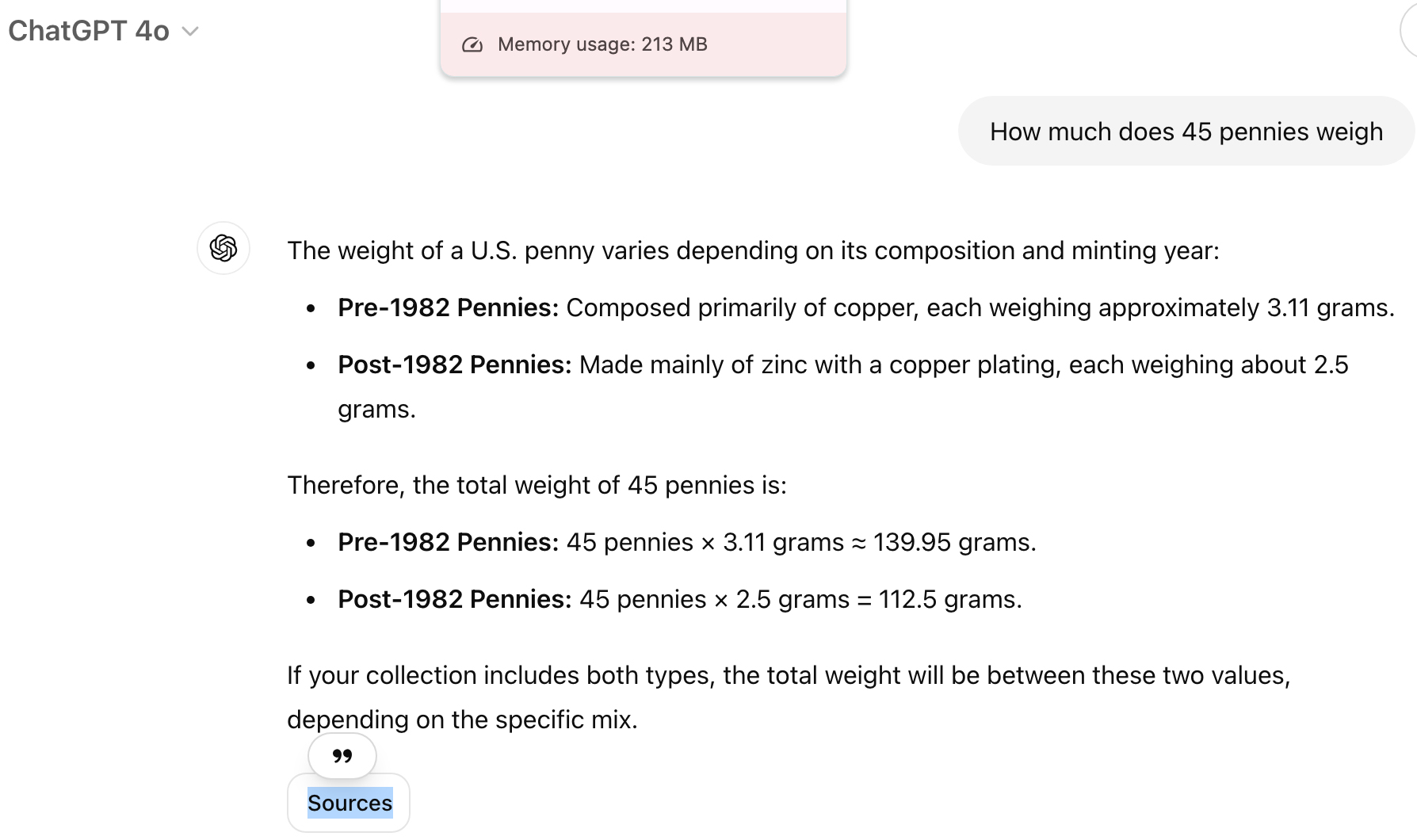
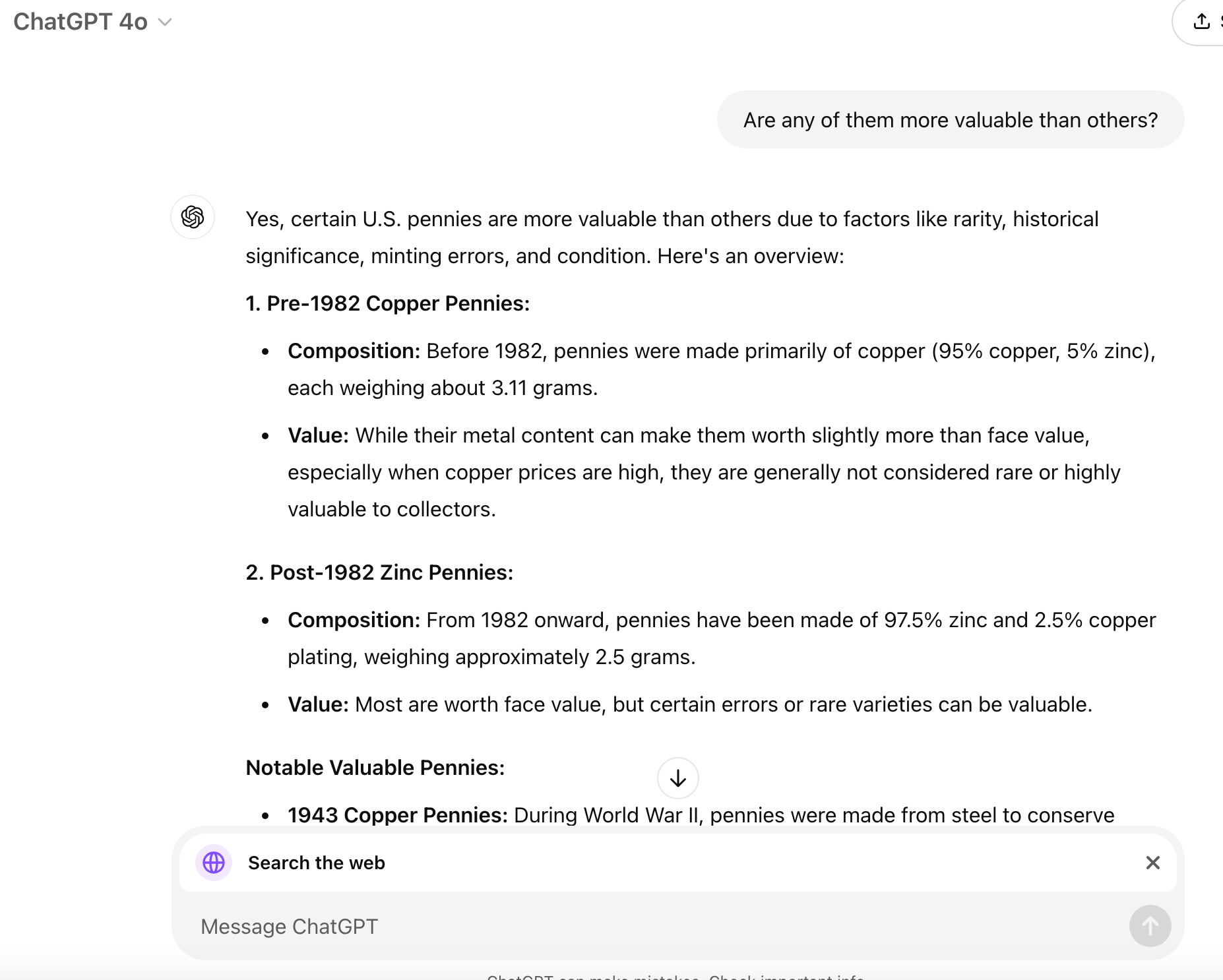
I asked how much 45 pennies weigh and got a nice detailed answer that noted that the weight has changed over the years. Usually, the sources are inline, but in this case, I had to click the Sources button to see that it pulled the information from the US Mint and Wikipedia, among others. That button, by the way, usually shows a group of tiny brand icons to credit sources,
When I followed up with “Are any more valuable than others?” ChatGPT Search knew I was still talking about the pennies. For what it’s worth, 1943 copper pennies are particularly valuable.
Then I asked Google the same question, AI overviews weren’t available and the first result was a link to Quora with a summary of what appeared to be guesses. I’m surprised the US Mint results didn’t appear above the virtual fold.
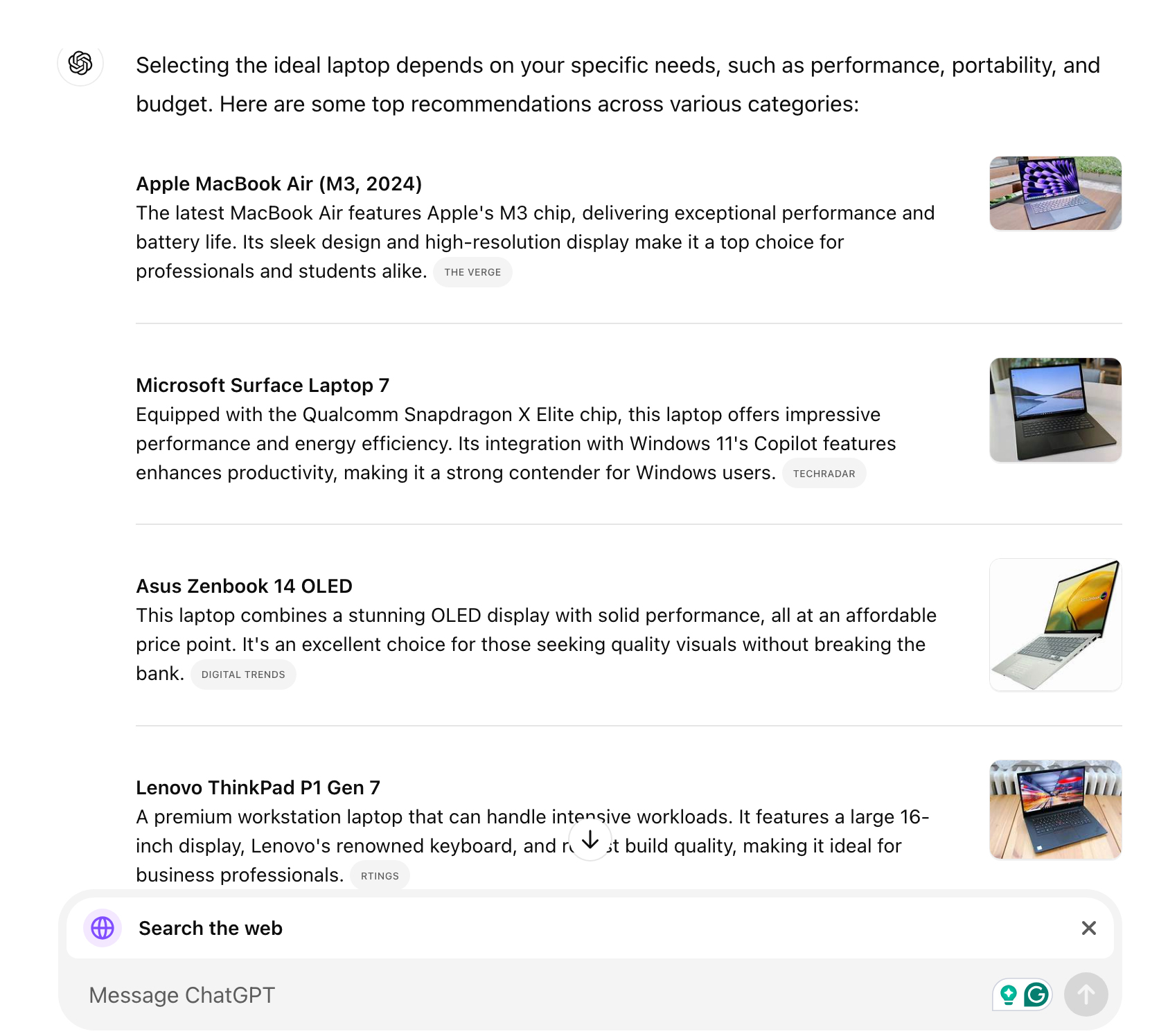
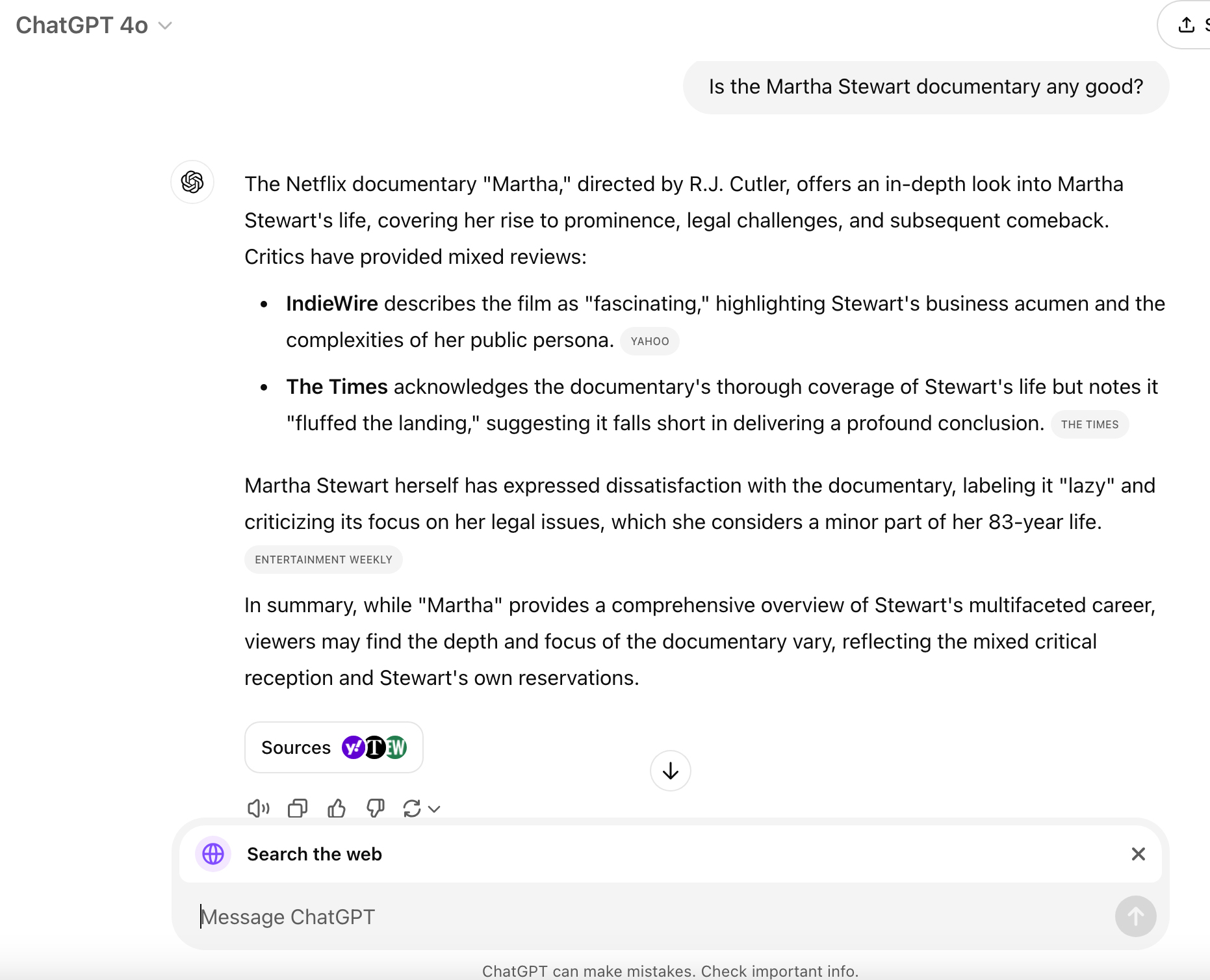
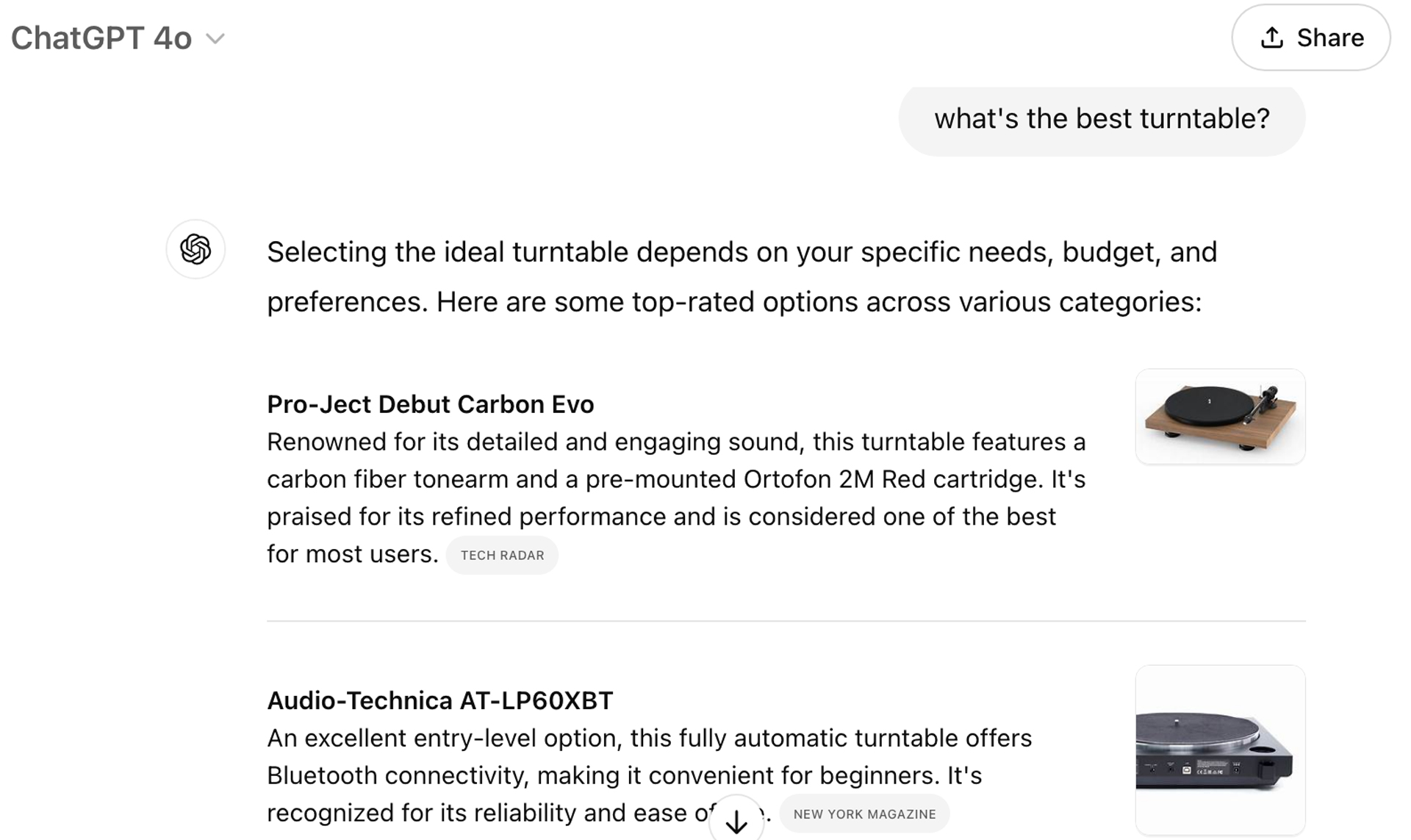
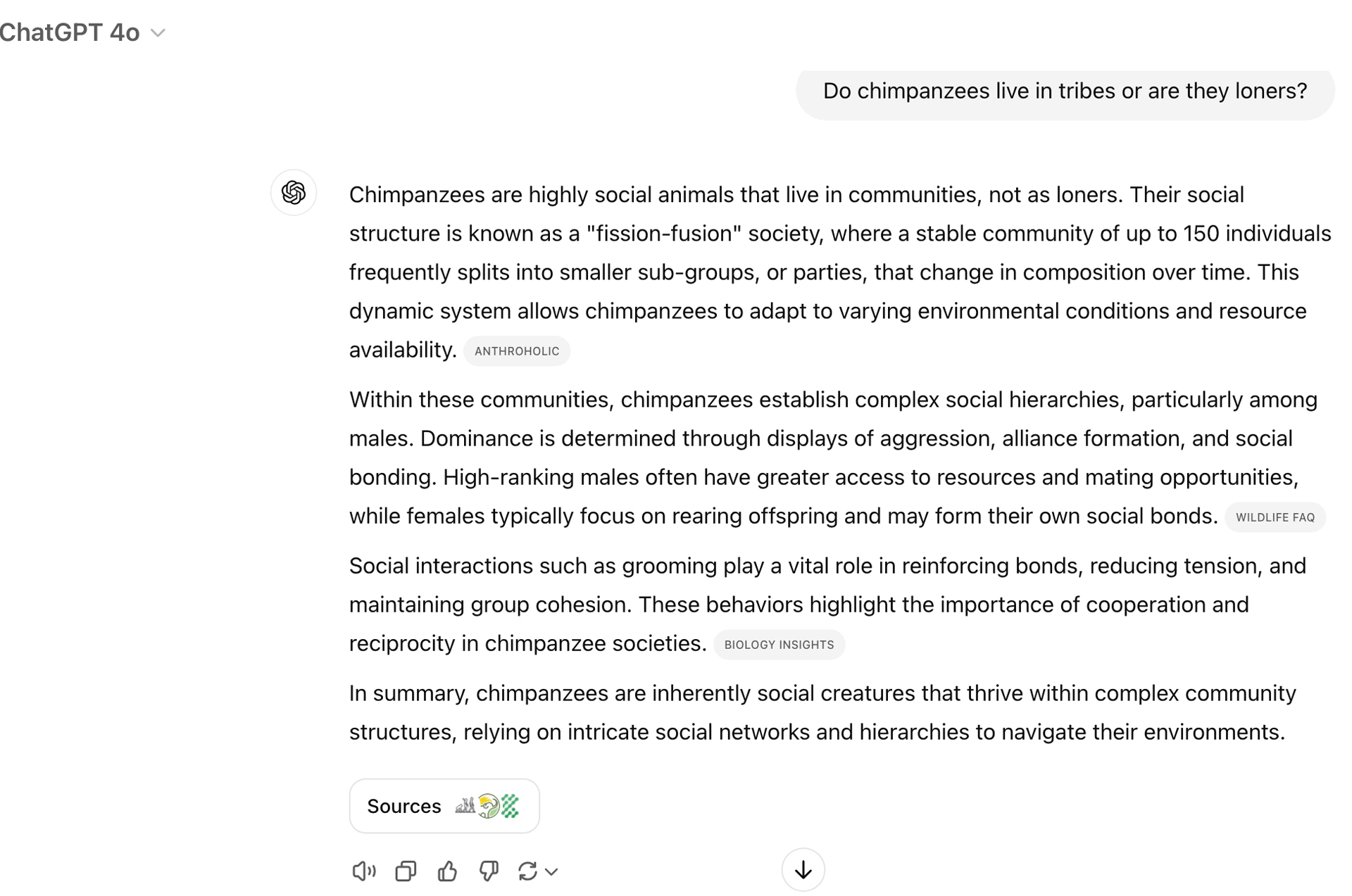
When I asked ChatGPT for directions from Bryant Park to Dumbo Brooklyn, it used a source I’d never heard of (Rome2Rio), but it was accurate.
When I asked a follow-up, “Can I see a map?” it maintained context and showed me an MTA subway map. Later, I conducted the same search but this time followed with "Is there good food?"
Again, ChatGPT search knew I was still talking about Dumbo and returned almost a dozen options that I could peruse through a side-scrolling carousel. Vinegar Hill House with its cast-iron chicken looks yummy. In one funny turn, though, directions for each eatery link to – wait for it – Google Maps.
When I conducted the same Bryant Park to Brooklyn search on Google, it did a better job of integrating a big Google Map and also used Rome2Rio. Below that was one of Google's many search enhancements, the “People also ask” section. It's not something I asked for, though some might argue details about, for instance, which subway is closest to Bryant Park, could come in handy.
There really isn't a good way in Google to apply a follow-up question like, "Is there good food?" First, I had to delete the text already in my Google Search box and the results returned restaurants for my area and not Dumbo, Brooklyn.
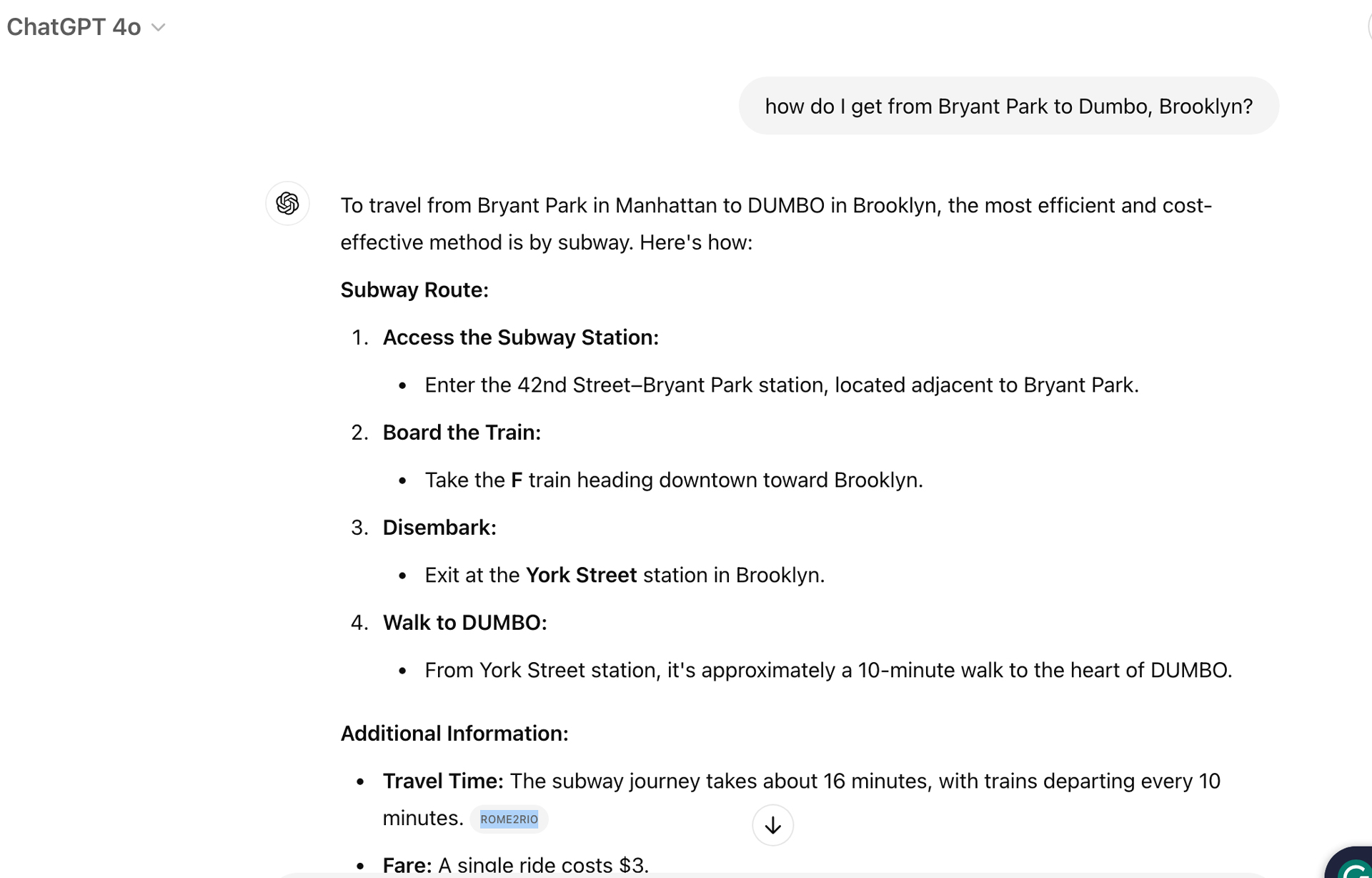
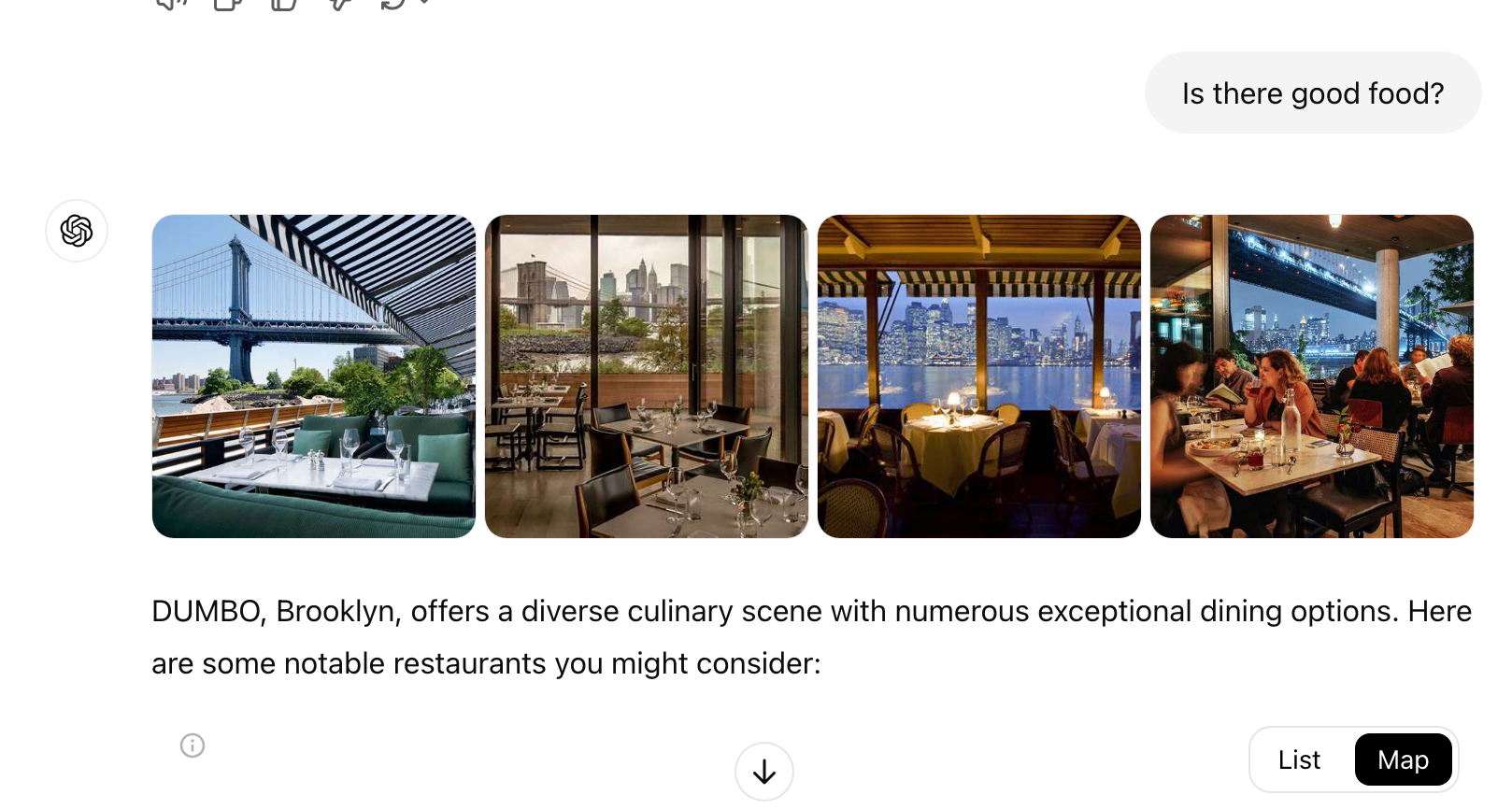
Unlike Google, ChatGPT search doesn't generate an entirely new page for my queries and instead maintains the thread. I can scroll back up to see where I've been, what I've been asking, and the answers ChatGPT search returned.
I'm not arguing that SearchGPT is the better search engine. It's way too early for that and I doubt OpenAI's knowledge graph is anywhere near as rich as Google's. Plus, Google integrates its myriad tools into search in ways not yet possible with ChatGPT. Even so, right now, ChatGPT search just feels better. But being better doesn’t mean ChatGPT search wins.
Google is a verb and ChatGPT is far from that. Sure, everyone is talking about it but consumers do not use it at anywhere near the level they do Google, which is essentially a homepage for many.
I’m sure that when I’m done experimenting with ChatGPT search, I’ll lapse right back into using Google, like a reflex. Unless, of course, I install the Chrome extension that could make ChatGPT my browser's new default search engine. Now that would be interesting and probably a significant concern for Team Google.
You might also like
Get daily insight, inspiration and deals in your inbox
Sign up for breaking news, reviews, opinion, top tech deals, and more.

A 38-year industry veteran and award-winning journalist, Lance has covered technology since PCs were the size of suitcases and “on line” meant “waiting.” He’s a former Lifewire Editor-in-Chief, Mashable Editor-in-Chief, and, before that, Editor in Chief of PCMag.com and Senior Vice President of Content for Ziff Davis, Inc. He also wrote a popular, weekly tech column for Medium called The Upgrade.
Lance Ulanoff makes frequent appearances on national, international, and local news programs including Live with Kelly and Mark, the Today Show, Good Morning America, CNBC, CNN, and the BBC.